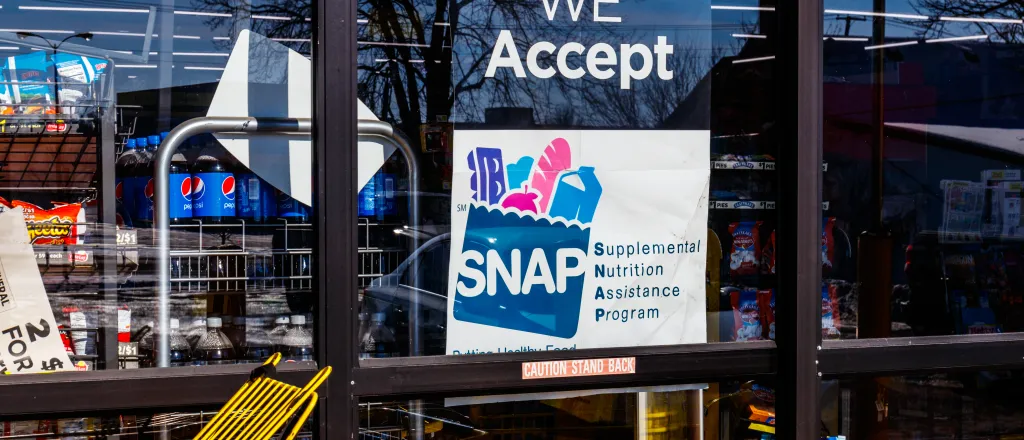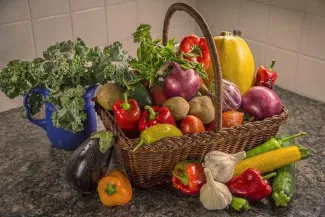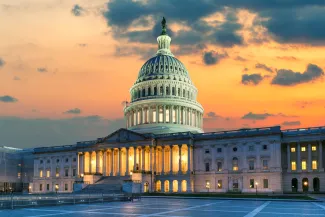
Report: More than 3 million people would lose SNAP benefits under GOP bill
The massive tax and spending bill passed by U.S. House Republicans would likely result in 3.2 million people losing food assistance benefits, and saddle states with around $14 billion a year in costs, according to a new analysis from the nonpartisan Congressional Budget Office.
Democrats have argued the bill, which the House passed, 215-214 early Thursday without any Democrats in support, would cut programs for the needy to fund tax breaks for high earners.

© Pixabay - skeeze
The CBO document, issued late Thursday, responded to a request to the office from the top Democrats on the Senate and House Agriculture committees, Sen. Amy Klobuchar and Rep. Angie Craig, both of Minnesota, and somewhat bolsters that claim. The panels oversee federal food aid programs.
“This report is truly devastating,” Craig said in a Friday statement to States Newsroom. “As a mother and someone who at times relied on food assistance as a child, these numbers are heartbreaking. It is infuriating that Republicans in Congress are willing to make our children go hungry so they can give tax breaks to the already rich.”
A provision in the bill to tighten work requirements, including by excluding single parents of children older than 6 and by raising the age of adults to whom the work requirements apply, of the Supplemental Nutrition Assistance Program, or SNAP, would result in 3.2 million people losing access to the program in an average month, the CBO report said.
Of those, 1.4 million would be people who currently have a state waiver from work requirements that would be disallowed under the bill and 800,000 would be adults who live with children 7 or older, the report said.
Republicans want to use the legislative package to extend the 2017 tax law and its cuts, increase spending on border security and defense by hundreds of billions of dollars, overhaul American energy production, restructure higher education aid and cut spending.
Toll on states
The cost-share changes, which would require states for the first time to pay for a portion of SNAP benefits, would also limit participation and add a massive line item to state budgets, according to the CBO.
Starting in 2028, states would be responsible for paying 5% to 25% of SNAP benefits, with a state’s share rising with its payment error rate. The federal government currently pays for all SNAP benefits.
Under the House bill, which will likely undergo substantial changes as the Senate considers it in the coming weeks, states collectively would be responsible for just less than $100 billion from 2028 to 2034, about $14 billion per year.
States would respond in a variety of ways, CBO Director Phillip Swagel wrote, including potentially dropping out of the program.
“CBO expects that some states would maintain current benefits and eligibility and others would modify benefits or eligibility or possibly leave the program altogether because of the increased costs,” he wrote.
The office took a “probabilistic approach to account for a range of possible outcomes” to determine what the effect on households would be and estimated that 1.3 million people would lose benefits because of state responses to the new cost-share.
CBO’s forecasters determined the impacts of the work requirements and cost-share provisions separately, meaning some people potentially losing benefits could have been counted in both categories.
Move to the Senate
The House vote Thursday sent the measure to the Senate, where the debate over SNAP benefits may fall along similar party lines.
Republicans who hold control in that chamber are planning to employ the budget reconciliation process, which allows them to skirt the Senate’s usual 60-vote requirement for legislation.

During the House Agriculture Committee’s debate over its portion of the legislation, Republicans on the panel said the work requirement and state cost-share measures were needed reforms to SNAP that would protect the program for those it was meant to serve, while limiting the costs associated with benefits to adults who were able and unwilling to work or in the country illegally.
In a Friday statement, Sara Lasure, a spokeswoman for Senate Agriculture Committee Chair John Boozman, an Arkansas Republican, also said the panel would seek reforms to the program but did not offer specifics.
“The Senate Agriculture Committee is in the process of crafting its budget reconciliation package and will work as good stewards of taxpayer dollars to make commonsense reforms to SNAP that encourage employment,” she wrote in an email.
Klobuchar, in a statement after House passage Thursday, blasted the House bill and indicated she would oppose efforts to cut SNAP benefits.
“House Republicans are pulling the rug out from under millions of families by taking away federal assistance to put food on the table,” she said. “They’re doing that even as President Trump’s tariff taxes raise food prices by more than $200 for the average family, all to fund more tax breaks for the wealthy. That’s so very wrong —and we will fight against it in the Senate.”














